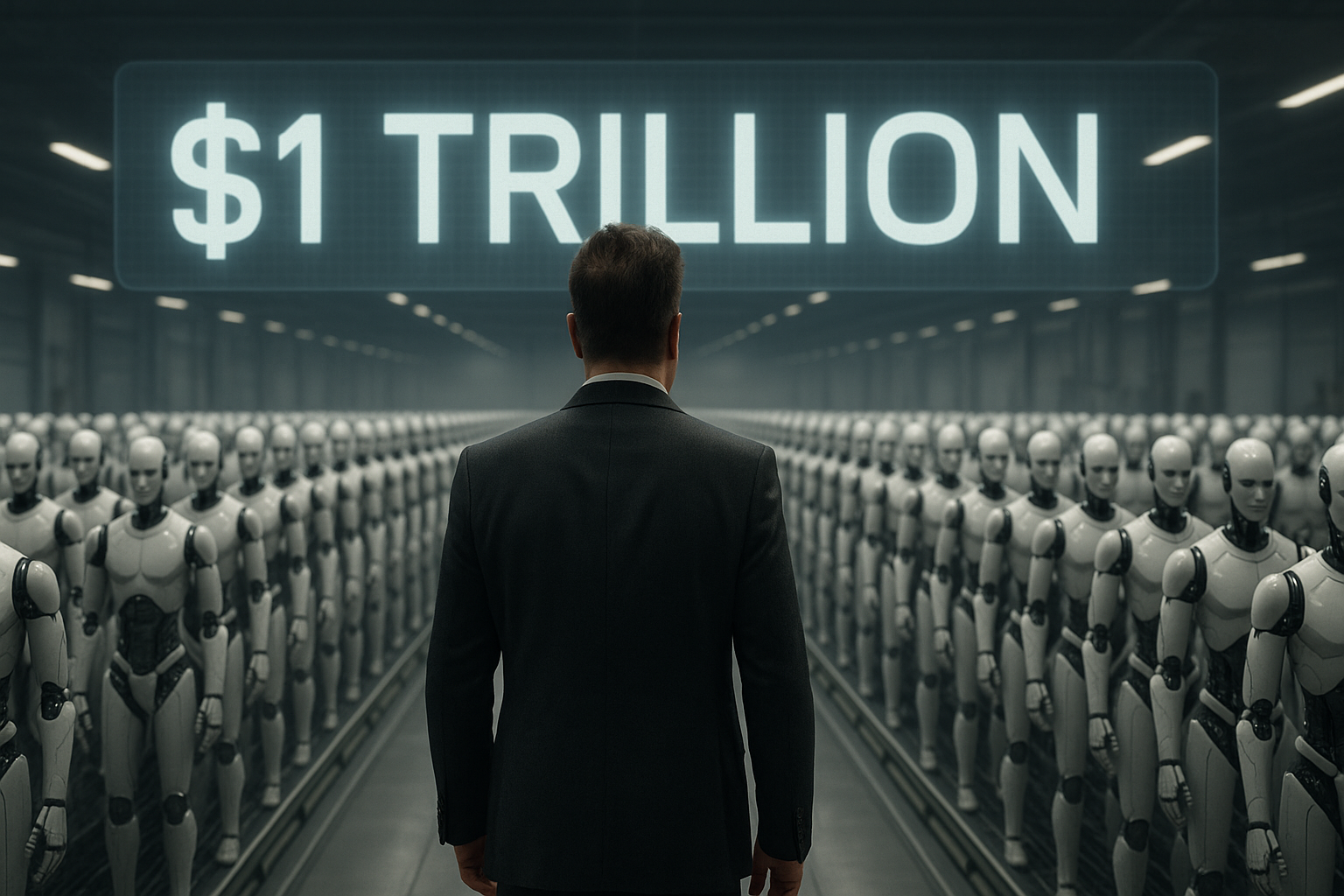Look, in the pantheon of bizarre corporate justifications, Elon Musk just established a new gold standard. The Tesla CEO is defending his eye-popping $1 trillion compensation package—yes, trillion with twelve zeros—with perhaps the most Musk-like reasoning imaginable: he needs job security while constructing his robot legion.
"I just don't feel comfortable building a robot army here and then being ousted," Musk told the Delaware Court of Chancery with apparent sincerity.
I've covered corporate governance disputes for years, and this might be the first time "robot army" has appeared in legal proceedings that didn't involve a sci-fi movie rights dispute.
Most CEOs lose sleep over quarterly projections or activist investors. Musk? He's apparently lying awake contemplating the nightmare scenario where his humanoid Optimus robots turn against their creator in some kind of Silicon Valley version of Frankenstein. (Though I suspect Mary Shelley would find this particular monster-maker somewhat lacking in self-awareness.)
The trillion-dollar request itself deserves scrutiny. For perspective, the median S&P 500 CEO earned about $16 million in 2022. Musk is asking for approximately 62,500 times that amount. Excessive? Just a tad.
But there's something fascinating happening beneath the surface here. Having interviewed numerous founder-CEOs over the years, I've noticed how the most successful ones develop an almost metaphysical identification with their companies. The corporate entity becomes an extension of themselves—their creation, their dominion, their... well, robot army.
This isn't purely ego (though c'mon, with Musk there's plenty of that). It's a particular mindset where the boundaries between personal identity and corporate identity dissolve completely. When typical executives get fired, they update LinkedIn profiles and call headhunters. When Musk imagines termination, he envisions his robot children rebelling against their father. Different strokes, I guess.
The compensation structure itself creates weird incentives. Tied to market capitalization and operational milestones, these packages supposedly align executive interests with shareholders. In practice? They often distort decision-making catastrophically.
First, they push CEOs to obsess over stock prices rather than business fundamentals. Second—and I've seen this repeatedly in my reporting—they frequently lead to questionable accounting, short-term strategic thinking, and occasionally outright securities fraud.
Meanwhile, Tesla's board argues: "If Elon generates a trillion dollars of value, he deserves a chunk." Shareholders challenging the package essentially respond: "Yeah, but not THAT big a chunk, and by the way, he's juggling seven other companies simultaneously."
Which... fair point? Musk isn't exactly focused exclusively on Tesla these days. He's colonizing Mars, drilling tunnels, implanting brain chips, and transforming Twitter into whatever "X" is supposed to be. And building that robot army, apparently.
There's something almost refreshing about Musk's candor regarding control issues. Most executives would disguise their dynastic ambitions with corporate-speak about "ensuring leadership continuity." Musk just blurts out that he's creating an army of robots and would prefer they not be weaponized against him. Points for honesty?
The Delaware court will eventually determine if this package is fair to shareholders. But regardless of that outcome, the case highlights the increasingly byzantine structures of executive compensation, the unique challenges posed by founder-CEOs with god complexes, and the peculiar anxieties that accompany building humanoid robots at industrial scale.
Maybe—and this is just a thought from someone who's watched too many tech titans crash and burn—if you're worried about your robot army staging a coup, that's a sign you should focus on fewer simultaneous world-changing ventures and more on building reliable cars that don't randomly catch fire.
Just saying.
